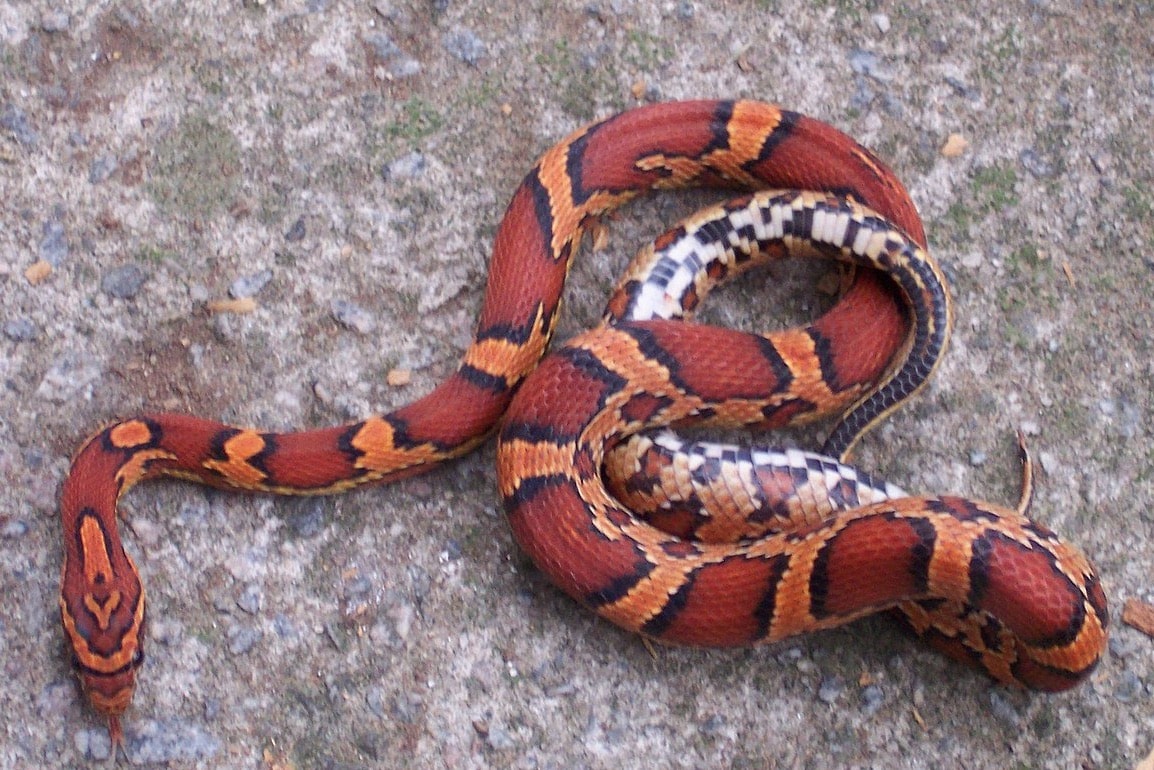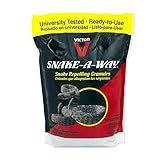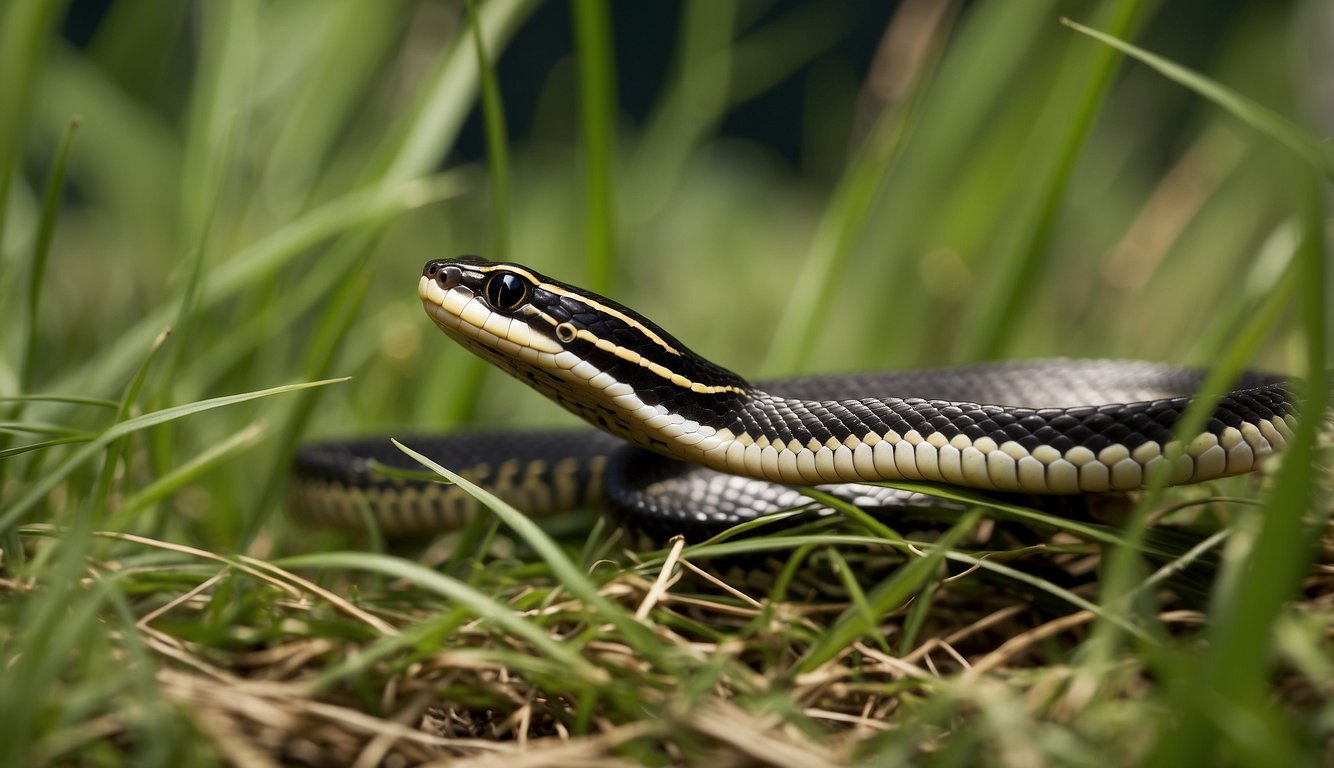| Question | Do Mothballs Keep Snakes Away? |
|---|---|
| Answer | Super Bad Idea |
| More Info | Mothballs are commonly thought to repel snakes, but they are not an effective or safe deterrent. Mothballs contain naphthalene or paradichlorobenzene, chemicals that can be harmful to humans and animals if inhaled or ingested. The odor of mothballs is not strong enough to reliably repel snakes over a significant area. Additionally, using mothballs outside of their intended purpose (in closed spaces to repel moths and other insects) is illegal in many places due to their toxic nature. Safer, more effective methods should be considered for snake control. |
Mothballs and Their Uses
Mothballs are a common household product traditionally used to protect clothing from moths and other fabric-damaging pests.
Here’s what you need to know about them:
- Composition: They typically consist of two active ingredients:
- Naphthalene
- Paradichlorobenzene
- Physical Form: Mothballs look like small white balls, designed to sublimate, turning from a solid directly into a gas.
Primary Function:
- Pest Control: Mothballs slowly release a gas that is toxic to moths and other insects, effectively deterring them from the area.
Safety Considerations:
- Toxicity: The chemicals in mothballs are toxic.
- Make sure to use them correctly and store them out of reach of children and pets.
- Ventilation: When using mothballs, ensure good ventilation to avoid inhalation of fumes.
Legislation:
In some places, regulations are in place regarding how mothballs can be used, due to their potential hazardous effects.
Alternative Uses:
- Repelling Other Pests: Some people use mothballs to repel animals like rodents; however, effectiveness varies and is not widely endorsed by pest control experts.
Mothballs and Snake Repellence

Mothballs are commonly discussed as a repellent for snakes, but the debate continues regarding their effectiveness and safety. Understanding the facts will help you make an informed decision about using mothballs around your property.
Effectiveness of Mothballs Against Snakes
- Empirical Evidence: Research and expert opinions suggest that mothballs are largely ineffective at deterring snakes.
- Contrary to some claims, snakes often do not avoid areas treated with mothballs.
- Active Ingredients: Mothballs consist primarily of naphthalene or paradichlorobenzene, substances that have not been scientifically proven to repel snakes effectively.
Safety Concerns With Mothball Use
- Toxicity to Humans and Pets: The chemicals in mothballs are toxic and can cause health issues if inhaled or ingested.
- Proper Usage: Mothballs are intended for deterring moths in confined, airtight containers, and using them outside of these conditions can lead to hazardous exposure.
Legal and Environmental Implications
- Regulations: It is illegal to use mothballs in a manner inconsistent with their labeling. Using them as a snake repellent outdoors violates these federal regulations.
- Wildlife Impact: Misuse of mothballs can negatively affect not only snakes but also other wildlife and the environment. They can contaminate soil, water, and harm non-target species.
Alternative Snake Repellent Strategies
While mothballs are often touted as a snake repellent, evidence suggests they are ineffective. Instead, explore other strategies to keep these reptiles at bay.
Natural Repellents and Deterrents
Implementing natural methods to repel snakes from your property can be both safe and environmentally friendly. Consider the following:
- Maintain Your Yard: Keeping your grass mowed and eliminating debris can reduce hiding spots for snakes.
- Essential Oils: A mix of cinnamon and clove oil is a natural deterrent you can apply around your property.
- Barriers: Installing fine mesh fencing can prevent snakes from entering certain areas.
- Avoiding Water Accumulation: Removing standing water will dissuade snakes, as well as the prey they hunt, like frogs and rodents.
Professional Snake Control
When dealing with a persistent or dangerous snake problem:
- Consult Experts: Reach out to wildlife removal professionals who can safely remove and relocate snakes.
- Preventative Measures: A professional can offer effective snake-proofing techniques and advise on long-term prevention.
- Education: Learn from professionals about the types of snakes in your area and their behaviors.
Frequently Asked Questions
This section answers the most pressing questions about the use of mothballs as a snake repellent, and introduces you to the effectiveness, legal standing, and alternatives to this method.
How effective are mothballs at repelling snakes from residential areas?
Mothballs have a distinct smell due to the chemical naphthalene, which can irritate snakes, but their effectiveness at keeping snakes away is not backed by strong scientific evidence.
What are the legal implications of using mothballs as a snake repellent?
Using mothballs outside their intended purpose as a pesticide for clothing storage could have legal ramifications, since such usage is not compliant with pesticide regulations.
What are the alternative home remedies for deterring snakes?
Home remedies for deterring snakes include:
- Planting garlic or spraying a garlic-infused solution
- Filling in burrows and holes that can be used as snake shelter
- Keeping grass short to eliminate hiding spots
What is the duration of effectiveness for mothballs when used to repel snakes?
Mothballs’ scent fades over time, meaning their supposed repellent effect is temporary. They will need to be replaced periodically to maintain any potential deterrent effect.
Do mothballs provide a significant deterrent effect on snake presence?
While some individuals report success, no substantial scientific studies confirm that mothballs provide a significant deterrent effect on snakes.
What are the most effective commercially available snake repellents?
There are several commercially available snake repellents, although their effectiveness varies.
It is advised to research and select products that are scientifically proven and safe to use.
Last update on 2025-06-06 / Affiliate links / Images from Amazon Product Advertising API



